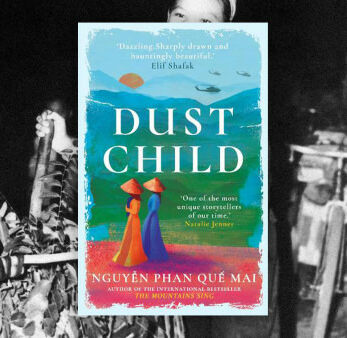FICTION: "The Mountains Sing" tells the stories of three generations of a family who lived through war and stayed through the aftermath.
"The Mountains Sing" is a multigenerational epic about a family torn apart by war and the efforts of its various members to survive. It is also the missing narrative of the American War in Vietnam. American readers have heard one part of this story from the perspectives of American veterans. More recent are works from the point of view of the Vietnamese Diaspora in the United States, including, for example, the exquisite writing of Viet Thanh Nguyen, Ocean Vuong, Bao Phi and Lê Thi Diem Thúy.
However, Nguyen Phan Que Mai's novel is unusual in the U.S. for centering the story of the Vietnamese who fought as nationalists against the various invading powers, French, Japanese and American, and then stayed to rebuild the nation of Vietnam under the Communist government.
"The Mountains Sing" depicts the tribulations and joys of four generations of the Tran family. Part of the story is told from the point of view of Grandmother Dieu Lan, who was born in 1920 in the era of French colonization and who lived through the Japanese occupation, the Land Reform era under the Communist government in the North, and the American bombing of Hanoi in 1972. The grandmother's chapters alternate with those of granddaughter Guava, reflecting from the 21st-century Vietnam on her grandmother's experiences.
Grandmother Dieu Lan is a memorable character as she grows from a defenseless girl who witnesses her own father's murder to a savvy survivor who learns to transcend political rhetoric in order to protect her own family as an adult, in part by trading on the black market. She eschews political dogmatism, telling her granddaughter, "You're old enough to understand that history will write itself in people's memories, and as long as those memories live on, we can have faith that we can do better."
At times, because of the number of characters, fast narrative pace and alternating points of view that go back-and-forth in time, it can be hard to keep track of what is happening when. Dieu Lan has six children, multiple siblings, and various adversaries and allies throughout her life, and some secondary characters are more vividly rendered than others.
However, Nguyen's poetic descriptions and deep affection for her characters allow the reader to feel for the Tran family's many vicissitudes.











